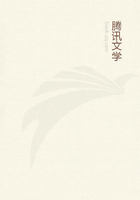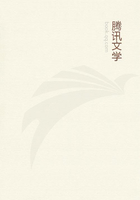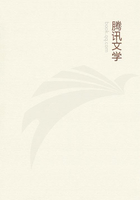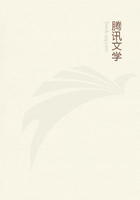A science nearly related to our own as regards its subject, that of jurisprudence, may give us admirable instruction on this point. For an act of murder there must necessarily be a perpetrator, a victim, an instrument, and an opportunity. Besides these, the act is influenced by innumerable circumstances, which can often be shown to reach back to a far distant past in the previous history of the murderer, and even in the history of the community among which he came into existence and grew into manhood. The sociologist, the historian, the philanthropist, and the lawgiver will have much to consider that has but an indirect connection with the committing of the murder. But, however far back they may carry their consideration, some idle brain can always go still further, and follow ad infinitum the series of causes which led to the deed, -- as, for instance, the history of the tool with which it was done, as well as the history of the doer. The judge, on the other hand, who, in his narrowly-defined task, is only concerned about the legal imputation, confines himself to the discovery of the legally responsible factor, --that person, in fact, who is threatened with the legal punishment. On him will rightly be laid the whole burden of the consequences, although he could never by himself alone -- without instruments and all the other conditions -- have committed the crime. The imputation takes for granted physical causality. It cannot fall upon any one who stands outside the series of causes which led to the result, and any proof that the accused does stand outside exempts him from condemnation. But if the causal nexus is once established, far more is laid to the account of the doer than was or could be physically done by him. Only a foolish interpretation of the judgment could take exception to this. The expression "this man has done it" does not mean "this man alone has done it," but "this man alone, among all the active causes and factors, is legally responsible for the deed."In the division of the return from production, we have to deal similarly not with a complete causal explanation, but with an adequately limiting imputation, -- save that it is from the economic, not the judicial point of view. Observation of the fruits of the earth suggests to a religious mind the Creator of all things. A scientific investigator is directed by the same observation towards the pursuit of the cognisable causes of their creation. A Faust pines after knowledge regarding the hidden forces of their life. The farmer, as farmer, thinks differently from all of these. He ascribes his crops, soberly and unsentimentally, to a very limited and small circle of all the causes which have actually produced them. He asks -- "Towards what things must I direct my economic attention in order to receive this return?" -- and reckons the result accordingly. He therefore sets apart from the total active causes all those which lie behind in the past. From the present causes he then sets apart all those which can be of no use, or are not recognised as having any use. From the recognised and useful, again, he divides off all those which are not under economic command. From these last he, finally, separates out all those causes which need not be cared for, because they are present in superfluity. As we can readily understand, he does not in the least believe that the remainder is the sole originating cause of his return. At the same time he rightly attributes or imputes the return to it alone, taking the working of all the other elements as assured.
His judgment, though limited, is neither false nor even inexact.
It embraces all the causes which have to be considered by him if his labour is to be attended by good results.
If, in the economic working out, parts of the total result should be traced back to individual instruments of production, it is that we continue the reasoning with which we started: we trace back the total result not to its numerous wider causes, but simply to the economic instruments of its production. In regard to the part we limit ourselves still more than we did in regard to the whole; we seek out that one among the economic elements to which the part is practically to be imputed, although, certainly, it could have produced it only in combination with the other elements. Here, again, there is neither fallacy, nor even inaccuracy. On the contrary, so far as this method succeeds in founding, upon the imputation of the return, a valuation of goods and a plan of production which insures the most successful employment of each single element, it is the height of practical wisdom.
To show that imputation in this sense is both allowable and practicable take one single case. Suppose that two fields, the one fertile, the other poor, but both worked with similar amounts of capital and labour, give different returns. To which account is the surplus return of the better field to be attributed -- to that of the seed, or the manure, or the plough, or the labour?
But these were the same in both fields. Is it not rather to be attributed to the land itself and its greater fertility? No one can be in doubt as to that, nor can one raise the objection that, without seed, manure, plough, and labour, there could have been no surplus return. Taking things as they are, more depends upon the possession of the better soil -- just as much more, in fact, as the surplus return amounts to.
It is of great importance that we should try to formulate theoretically the rules for the imputation of productive return, not only as regards land but as regards all productive instruments. If we do not succeed in doing so, the valuation of production goods will remain an enigma; and the existing order of things, under which the actual imputation of returns forms the basis for the distribution of national income among the citizens, will lie under the accusation of arbitrariness, if not the worse accusation of force and injustice. It would not even be possible to justify the difference in wages paid to some labourers as compared with others. If there is no rule by which to adjust the quarrel between owners and workers, neither is there any by which to measure the rank of the inventor against that of the day-labourer who carries out the invention. It would be purely arbitrary if one tried, even approximately and by way of valuation, to show respect to genius, devotion, art, power, skill -- in short all the virtues and excellences which, from time immemorial, have been held in respect in economic matters as well as in others, and which society has to thank for the most beneficent and useful services of its members.

